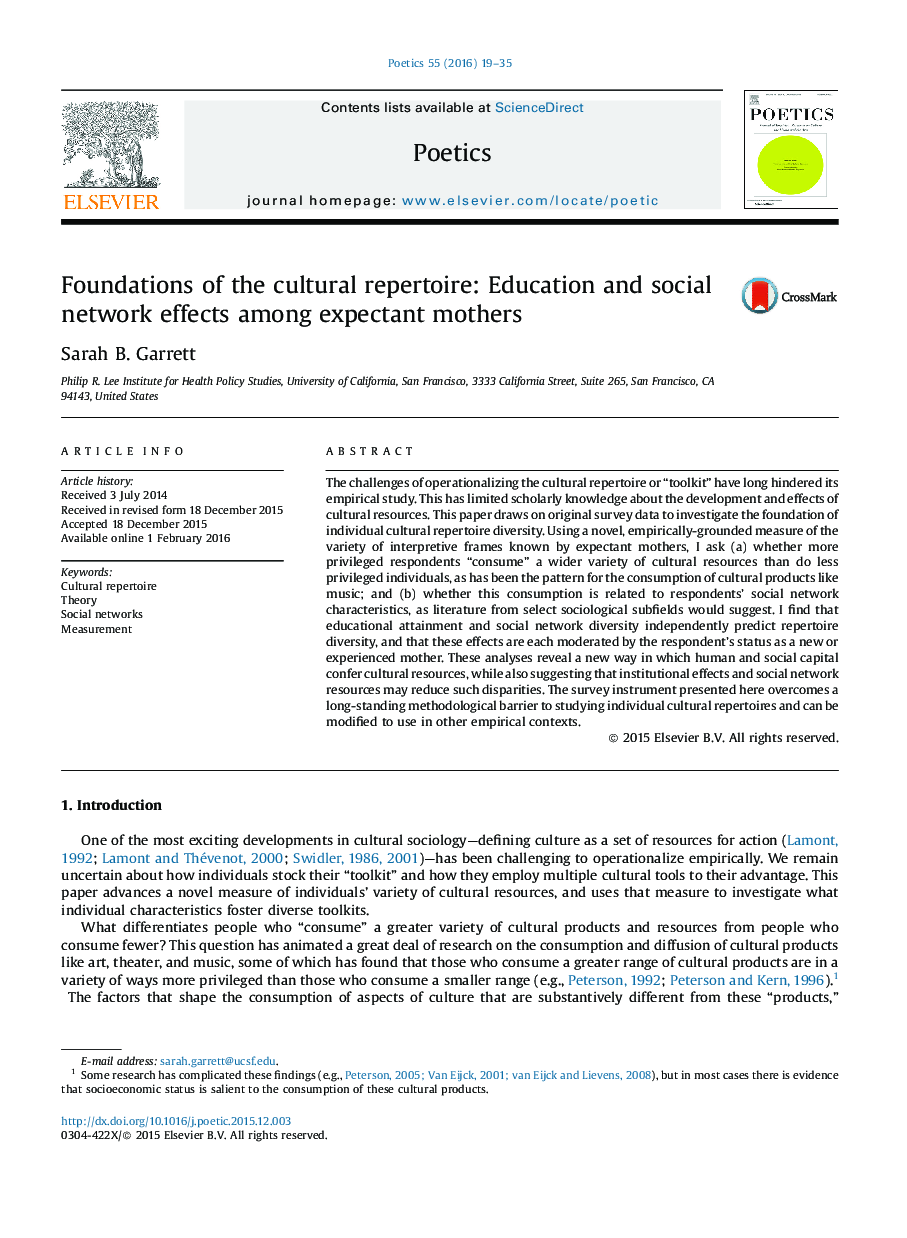| Article ID | Journal | Published Year | Pages | File Type |
|---|---|---|---|---|
| 1128279 | Poetics | 2016 | 17 Pages |
•The non-operationalization of the cultural repertoire has limited cultural sociology.•I introduce a domain-specific survey measure of cultural repertoire diversity (CRD).•Empirical case: variety of interpretive resources among expectant mothers.•Educational achievement and social network diversity independently predict CRD.•Maternal status moderates the effect of education and network diversity on CRD.
The challenges of operationalizing the cultural repertoire or “toolkit” have long hindered its empirical study. This has limited scholarly knowledge about the development and effects of cultural resources. This paper draws on original survey data to investigate the foundation of individual cultural repertoire diversity. Using a novel, empirically-grounded measure of the variety of interpretive frames known by expectant mothers, I ask (a) whether more privileged respondents “consume” a wider variety of cultural resources than do less privileged individuals, as has been the pattern for the consumption of cultural products like music; and (b) whether this consumption is related to respondents’ social network characteristics, as literature from select sociological subfields would suggest. I find that educational attainment and social network diversity independently predict repertoire diversity, and that these effects are each moderated by the respondent’s status as a new or experienced mother. These analyses reveal a new way in which human and social capital confer cultural resources, while also suggesting that institutional effects and social network resources may reduce such disparities. The survey instrument presented here overcomes a long-standing methodological barrier to studying individual cultural repertoires and can be modified to use in other empirical contexts.
